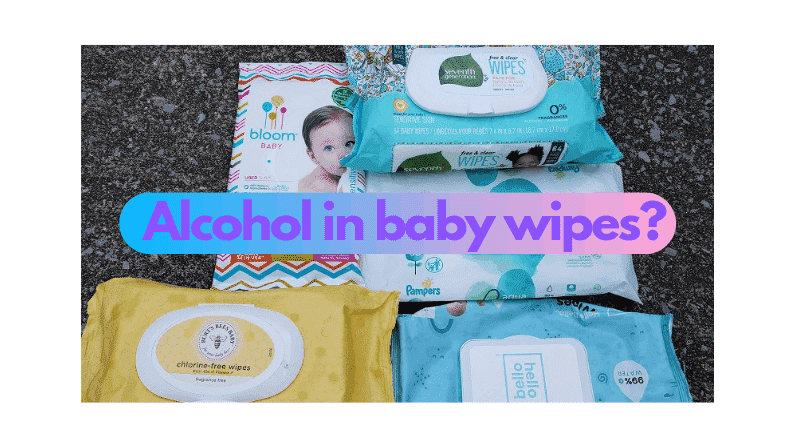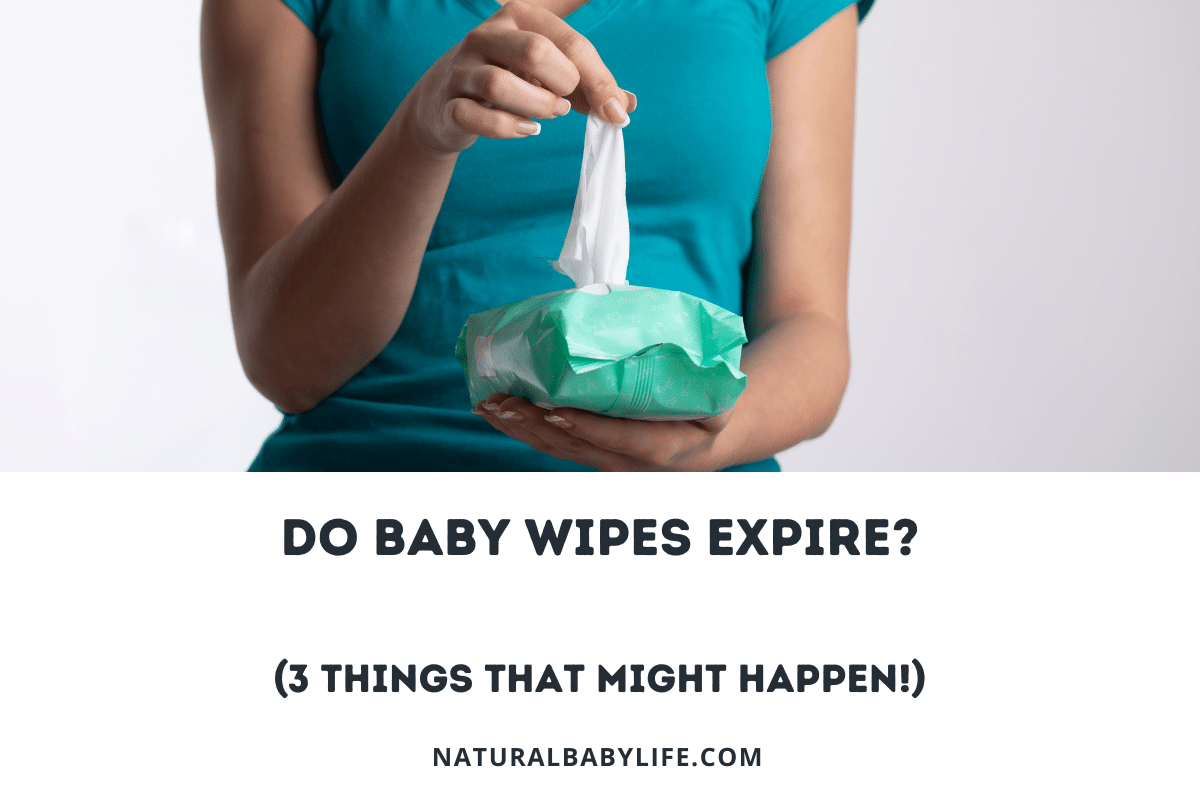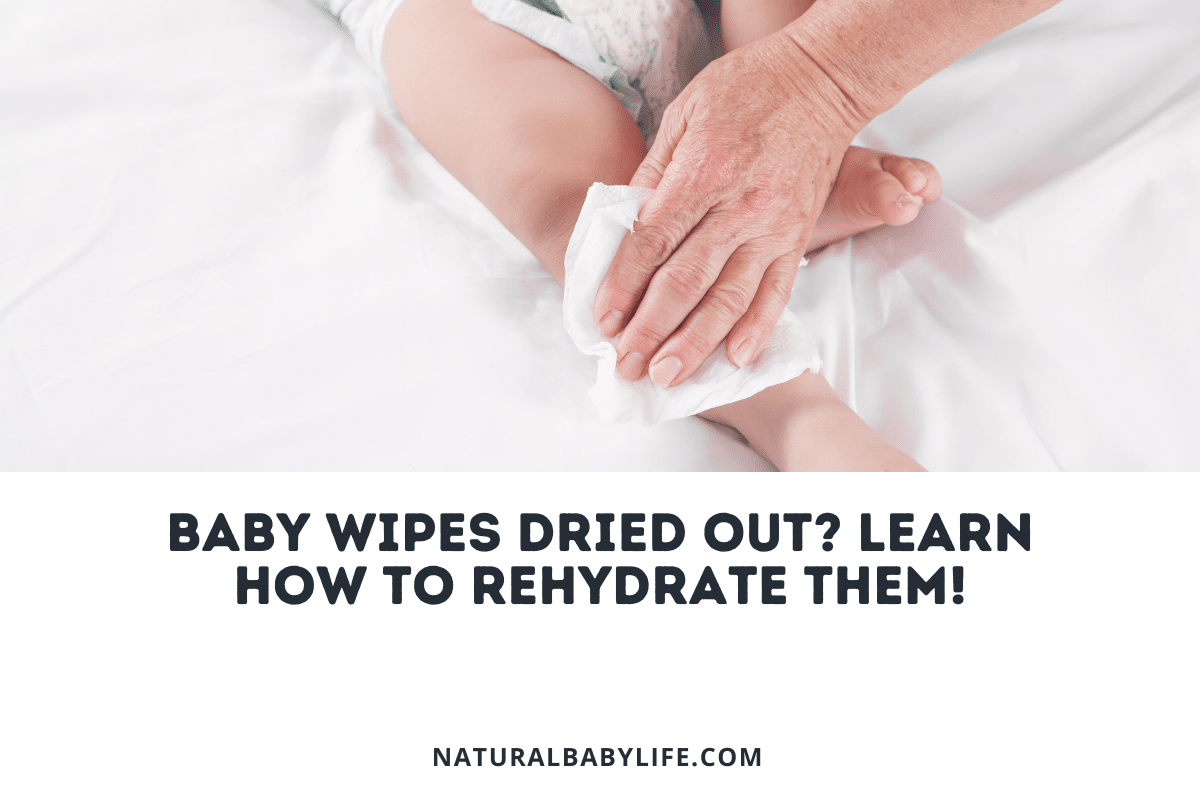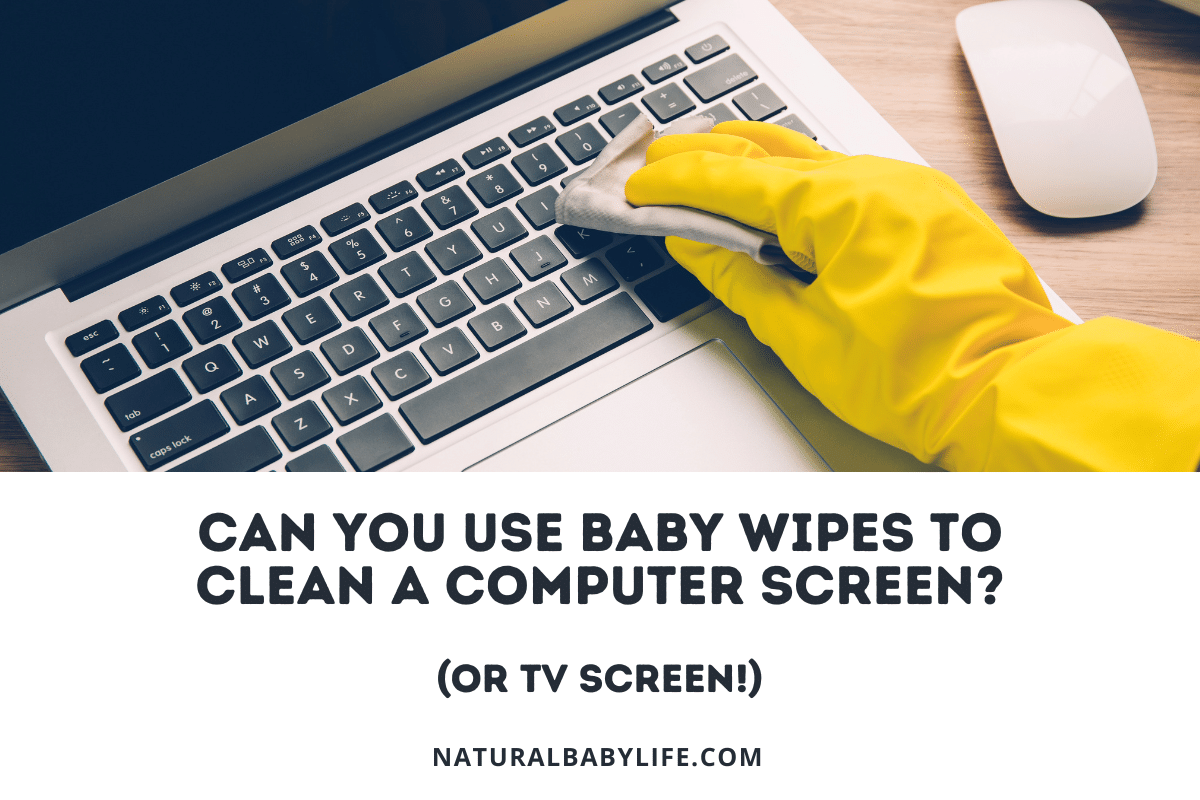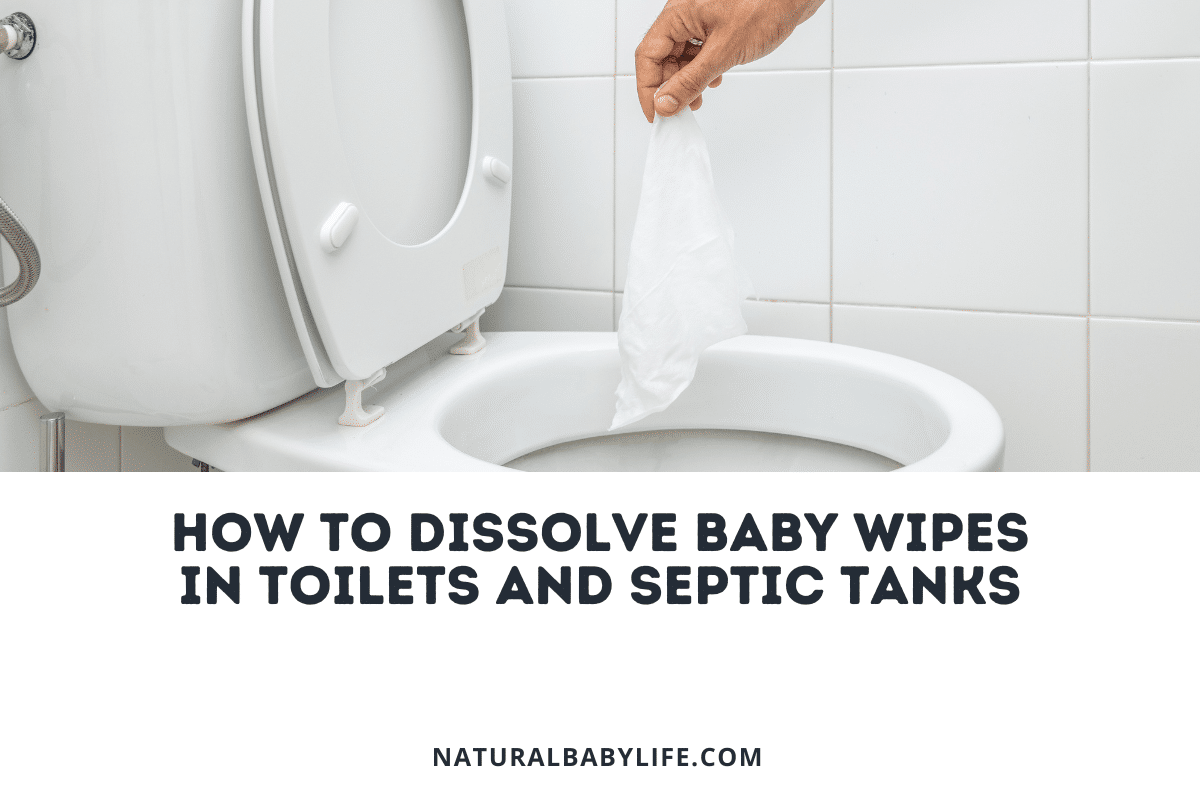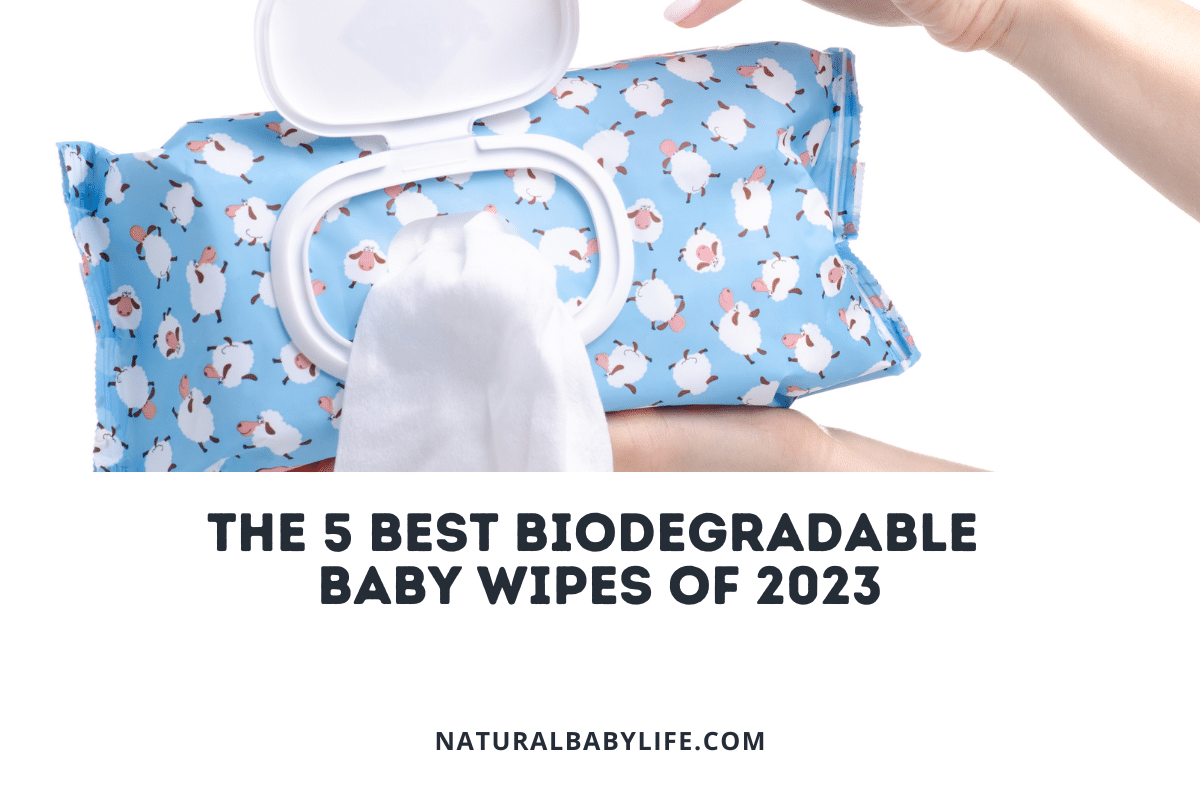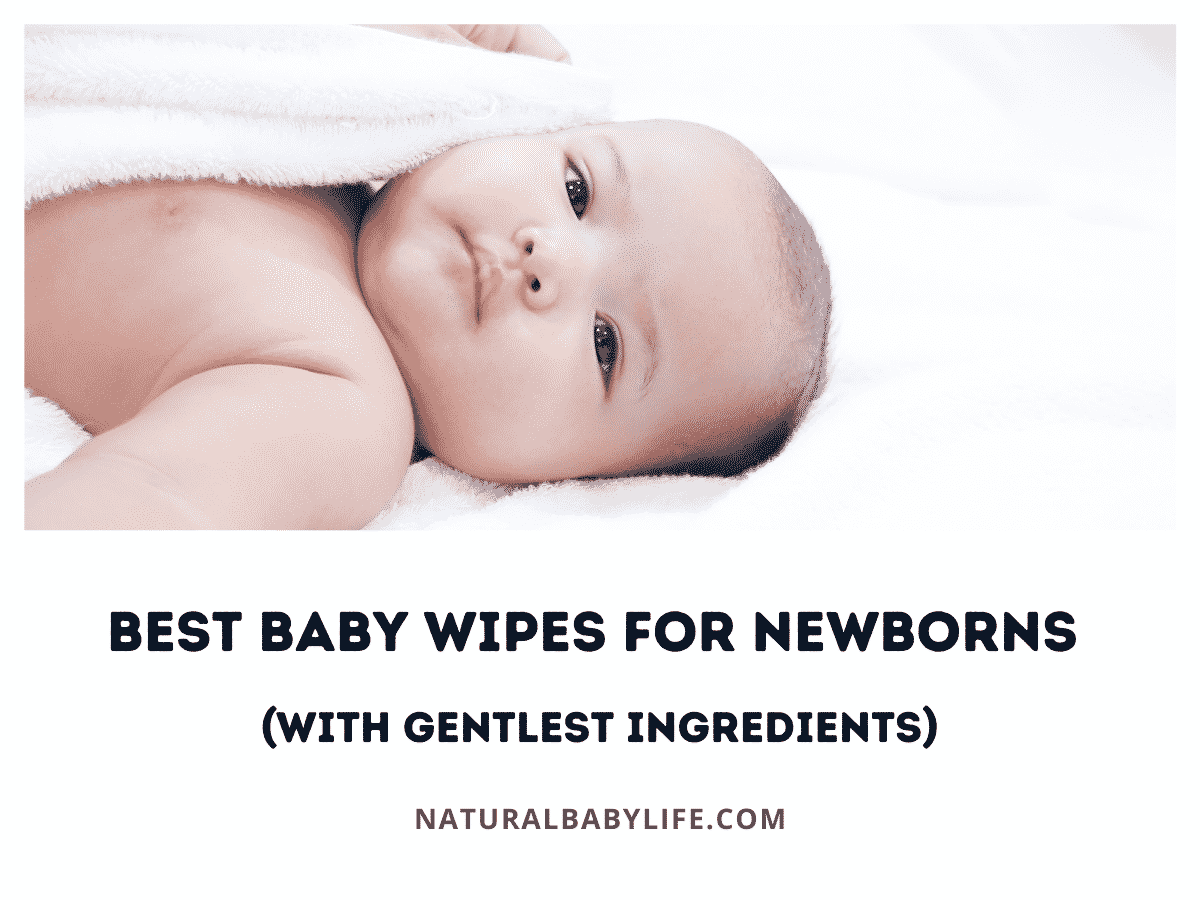Parents will often use thousands of baby wipes throughout their baby’s first years and many might wonder if baby wipes contain alcohol or other disinfectants.
Nearly all baby wipes sold in stores within the United States do not contain alcohol and are not able to effectively kill germs or sanitize surfaces. Alcohol and other disinfectants are not included in baby wipes because it would easily irritate a baby’s sensitive skin. Instead, most baby wipes include mild cleansing ingredients and moisurizers.
Still, it would make sense to include alcohol in baby wipes to help clean and sanitize during diaper changes or while cleaning up messes, right? Let’s see why reality is a little bit counter-intuitive in this case.
Table of Contents
Why there is no alcohol in baby wipes
Most modern baby wipes on the market today are at least pretending to be safer and gentler for your baby’s bottom than they used to be. As a result, ingredient labels are slowly, but surely, getting easier and easier to read because of the reduction of synthetic chemicals and a growing trend towards safer, more natural materials.
Dangers from chemicals added to diaper wipe solutions can cause disruptions in hormone production and regulation as well as trigger allergic reactions and other skin irritations. While every baby will respond differently, we’re of the opinion that it’s better to just avoid those potential dangers since it’s so easy to find alternatives these days.
It is rare to find alcohol listed as an ingredient in baby wipes because including it would be potentially irritating to a baby’s sensitive skin. Rather than disinfecting, baby wipes are meant to clean a baby’s clean by removing surface-level dirt and bodily fluids.
While alcohol is by no means a banned ingredient, and it definitely has its place, there are just too many reasons why we shouldn’t be adding it to baby wipes in most situations.
If you want to know my top picks for alcohol-free (and chemical free for that matter!) baby wipes then check out my post on the best biodegradable baby wipes available today. These are also better for the environment!
Alcohol can be drying for the skin
Of all potentially dangerous chemicals in baby wipes, the biggest sources for irritation and allergic reaction are sanitizers and alcohol.
Because they are meant to kill germs, sanitizers and alcohols usually end up being too harsh for a baby’s skin and, as a result, they can seriously dry out patches of skin that are exposed frequently, like the diaper areas, faces, and hands.
Once the skin becomes too dry, it’s much easier for tiny cracks and tears to form at the skin’s surface. Openings like this are bacteria’s best friend and once they start setting up shop diaper rash is sure to follow. Using baby wipes with alcohol in them on red, irritated skin is going to cause pain for the baby and less sleep for the parents!
What’s worse, if a yeasty rash forms it can be difficult to get rid of them on your own and it might require a trip to the doctor for an antifungal.
Do baby wipes clean?
Babies get dirty, this is a simple fact.
We’ve already said that it would make perfect sense to include alcohol in a baby wipe to make sure that we were sanitizing their skin and killing off dangerous germs when they get dirty. The bigger questions, however, are how are the babies getting dirty in the first place and do we really need to use harsh sanitizing ingredients to get our babies clean.
The grossest way that babies get dirty is definitely diaper related, but poop and pee aren’t inherently all that dangerous for babies.
Urine is sterile and poop, while gross, doesn’t really contain all that much harmful bacteria under normal circumstances. Problems arise quickly, however, if that pee and poop stay in contact with the skin for long periods of time because you aren’t changing the baby frequently enough because they can change the pH of the baby’s skin, cause irritation, and open up the door for rashes to occur.
Frequent changes will keep the babies skin dry, clean, and free of irritation.
Learn more about why baby wipes are not antibacterial
In other cases, such as babies playing outside, getting messy while they eat, or just generally getting into things they aren’t supposed to (this description also fits the family dog), there probably just isn’t a real reason to worry about harmful bacteria.
After all, it’s important for babies to have some exposure to germs, as long as it isn’t something irresponsible like putting them around sick people, to help develop their immune systems. For better or worse, babies also learn a lot about their environment by putting things in their mouth.
Swallowing something they shouldn’t or choking on an object are usually much bigger threats to your baby than whatever microbes happen to be floating around on it.
It’s also been shown that a good old fashioned bath with warm, soapy water is really the best way to remove harmful bacteria from a baby’s skin without causing unnecessary drying or irritation. My son absolutely LOVES getting his bath every night and our consistent use of natural wipes and a mild baby soap has kept him free of diaper rash from birth until now (11 months as of the time of this writing!)
Are baby wipes alcohol-free?
The disposable ‘wet wipe’ style wipes that we are familiar with today have been around for about 70 years.
Over this time period, manufacturers have added all kinds of chemical soaps, detergents, sanitizers, and alcohol depending on what the wipe was intended to clean up. In the early days, regulations weren’t as tight as they are now and it’s possible that there were all sorts of things hiding in the baby wipe solution.
It wasn’t until the late 1960’s that manufacturers even had to disclose what was in their products in the first place.
While there may have been alcohol in baby wipes in the past, it’s pretty clear now that there is a reason for the changes and it’s likely that we won’t any brands including this ingredient in the future. High quality, natural baby wipes focus on providing wipe solutions that are mostly water with just a few drops of natural moisturizers or preservatives in the mix.
Learn more about the difference between baby wipes and wet wipes.
Other problems with alcohol in baby wipes
Aside from the potential irritation of including alcohol in baby wipes, there are some other practical reasons that you would want to avoid having it in any baby product that you used.
For one, the alcohol evaporates extremely quickly. If it was a primary ingredient in your baby wipes, they would dry out way faster than you would be used to and it would probably lead to a lot of wasted wipes, especially if you are always forgetting to seal the package closed after you use them like we are in our house.
Another reason which is incredibly relevant to me is that my son absolutely LOVES chewing on his baby wipes when he gets the chance. I have a hard enough time as it is keeping him from licking his hands if we happen to use a hand sanitizer on them before he eats so I definitely don’t want something else to worry about on this front.
Learn more about the dangers of chewing on baby wipes

